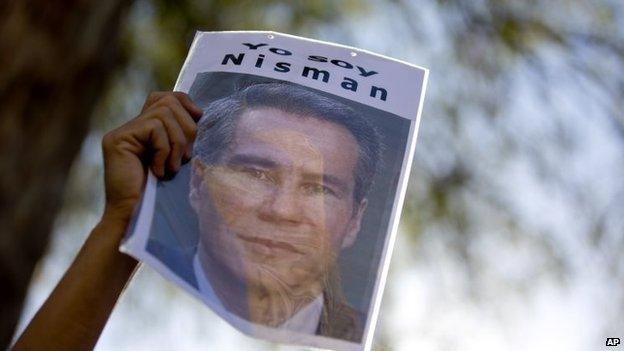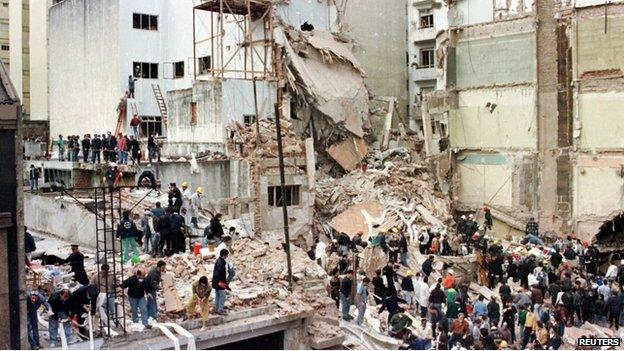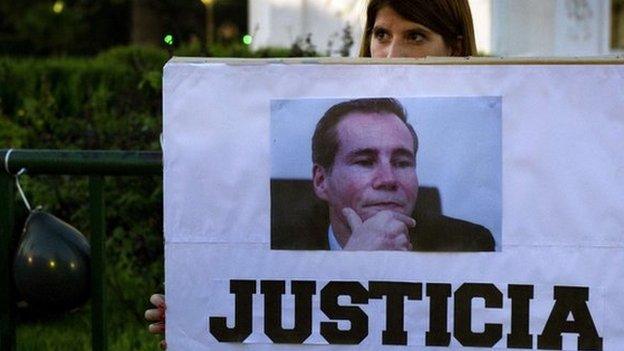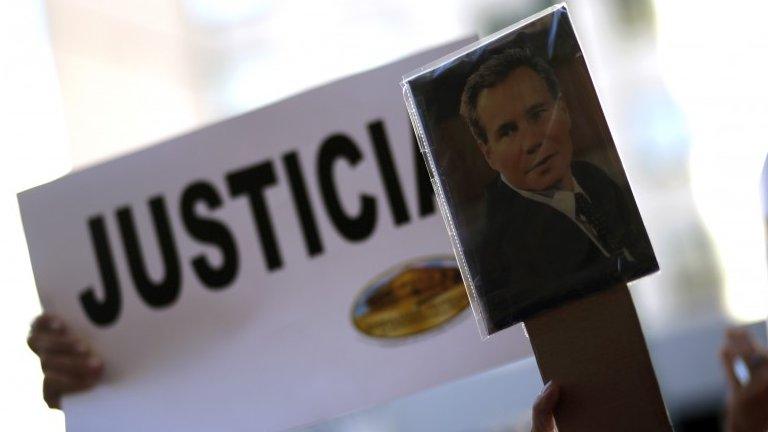Argentine court dismisses Cristina Fernandez case
- Published

President Cristina Fernandez de Kirchner will leave office in December
An Argentine appeals court has upheld a decision to dismiss a controversial case against President Cristina Fernandez de Kirchner.
She had been accused of covering up the alleged involvement of senior Iranian officials in a 1994 bomb attack against a Jewish centre in Buenos Aires.
Two out of three judges voted to reject an appeal by prosecutors, saying that no crime had been committed.
Ms Fernandez has always denied the allegations.
The original decision to throw out the case against Ms Fernandez was made by Federal Judge Daniel Rafecas in late February.
'No evidence'
He made his conclusions after examining a 350-page report that had been prepared by special prosecutor Alberto Nisman before his unexplained death in January.
On Thursday, the justice ministry said in a statement: "The federal appeals chamber ratifies the decision by Judge Daniel Rafecas to reject prosecutor Nisman's accusation."
The court of appeals agreed with Judge Rafecas' conclusion that there was no evidence pointing to Ms Fernandez.

The unexplained death of Mr Nisman has led to protests
The sudden death of Mr Nisman and the case against Ms Fernandez has dominated Argentine headlines for much of this year.
The prosecutor was found dead in his apartment on 18 January with a bullet wound to the head and a pistol lying by his side.
Mr Nisman had been only hours away from testifying in Congress against Ms Fernandez and Foreign Minister Hector Timerman.
The circumstances of his death are still unclear.
Earlier in March, Mr Nisman's family claimed independent tests showed that he was murdered.

No-one has been convicted for the attack against the Amia building, which happened on 18 July 1994
The government has rejected any role in his death.
Ms Fernandez said Mr Nisman had been fed misleading information by a rogue intelligence agent who was trying to discredit her government.
Eighty-five people died in the car bomb attack on 18 July 1994 which completely destroyed the seven-storey Argentine Israelite Mutual Association (Amia) cultural centre in the heart of the Argentine capital.
- Published28 January 2015

- Published23 January 2015
- Published5 February 2015
